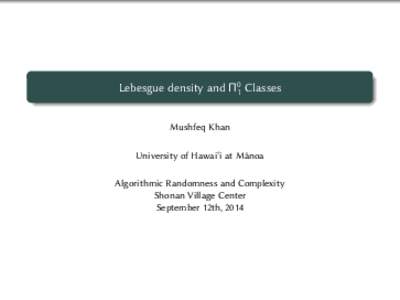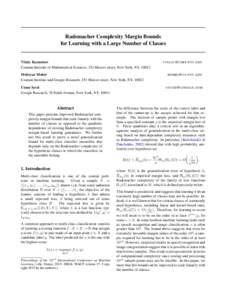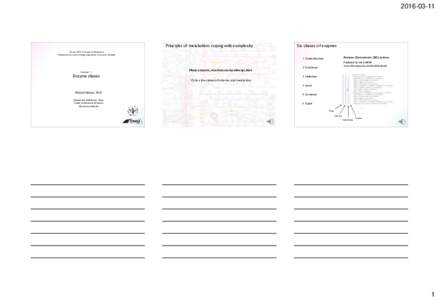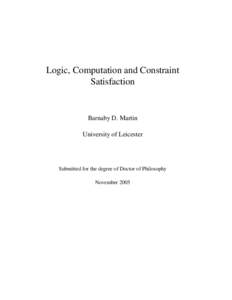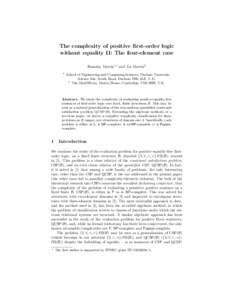<--- Back to Details
| First Page | Document Content | |
|---|---|---|
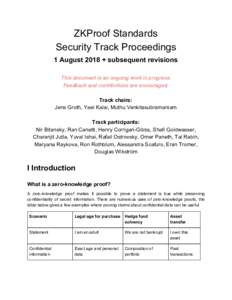 Date: 2018-10-25 10:32:39Cryptography Computational complexity theory Complexity classes Cryptographic protocols Non-interactive zero-knowledge proof Interactive proof system Proof of knowledge Zero-knowledge proof NP Zero knowledge IP Soundness |
Add to Reading List |
 ZKProof Standards Security Track Proceedings 1 August 2018 + subsequent revisions This document is an ongoing work in progress. Feedback and contributions are encouraged. Track chairs:
ZKProof Standards Security Track Proceedings 1 August 2018 + subsequent revisions This document is an ongoing work in progress. Feedback and contributions are encouraged. Track chairs: